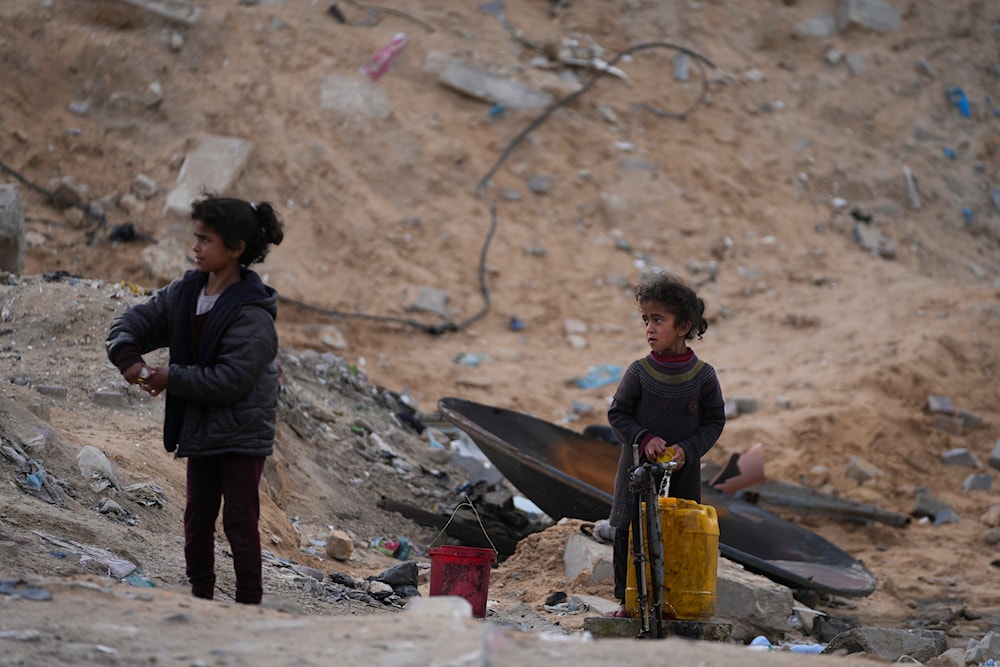Rafah faces humanitarian disaster as water crisis deepens
The Rafah Municipality has sounded the alarm over an impending humanitarian crisis as fuel shortages force the shutdown of essential water services.
-

Displaced Palestinian girls fill a plastic jerrycan with water at a school run by UNRWA, the UN agency helping Palestinian refugees, which they use as a shelter west of Gaza City, Sunday, March 9, 2025 (AP)
The Rafah Municipality announced on Saturday that it has been forced to halt fuel distribution for operating private and agricultural wells due to the tightened Israeli blockade and the continued closure of border crossings.
Rafah Mayor Ahmad al-Soufi highlighted the severe impact of the fuel shortage, emphasizing that the municipality had been sustaining operations for 80 private and agricultural wells, alongside the primary water sources. These efforts were crucial in maintaining water access for returning residents, who are already struggling under increasingly dire humanitarian conditions, as per the mayor.
He emphasized that "the depletion of fuel is crippling essential services, forcing the suspension of critical water operations, and putting thousands of lives at immediate risk while exacerbating an already dire health and environmental crisis."
Teetering on the edge of humanitarian collapse
Al-Soufi painted a bleak picture of the unfolding crisis, warning, "We are on the brink of a full-scale humanitarian disaster."
"Depriving people of water in these conditions exposes them to deadly diseases, particularly as they endure relentless aggression and an unyielding blockade," the Rafah mayor stressed.
He further highlighted the rapidly deteriorating situation, stating, "The water crisis in Rafah is reaching a breaking point. Israel’s refusal to allow essential supplies in is escalating this catastrophe, making it impossible to contain the health and humanitarian fallout."
Emphasizing the urgency of the crisis, he called on humanitarian and international organizations to take immediate action and exert pressure on "Israel" to reopen the crossings. He stressed the need for the unrestricted entry of fuel and essential relief supplies to prevent the situation from deteriorating further.
Al-Soufi also condemned the global silence, warning that "the international community’s inaction in the face of this crime will have grave consequences for the lives of Gaza’s 2.3 million residents."
Meanwhile, Israeli occupation forces have escalated punitive measures in an apparent bid to pressure Palestinian resistance amid ongoing prisoner exchange negotiations in Doha.
After weeks of blocking humanitarian aid, Israeli Energy and Infrastructure Minister Eli Cohen announced that "Israel will cut off electricity to Gaza," declaring, "I have ordered the electricity company to stop selling power to the Strip."
In response, Hamas held Israeli Prime Minister Benjamin Netanyahu "fully responsible for the catastrophic consequences of the ongoing siege on Gaza," as the humanitarian crisis worsened with each passing day.
Read more: 'Israel' destroyed only water desalination plant in northern Gaza

 3 Min Read
3 Min Read








